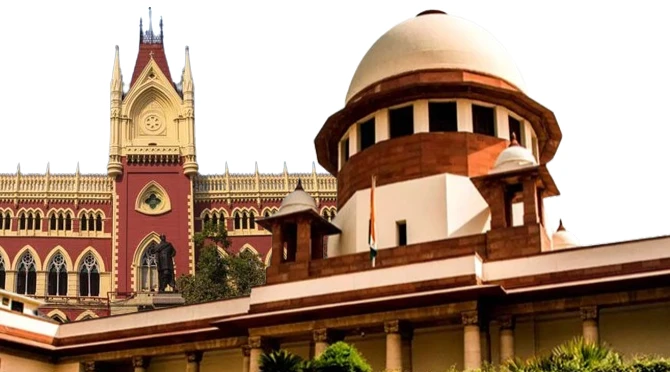
The Supreme Court on Tuesday overturned an order from the Calcutta High Court that acquitted an accused in a sexual assault case and made “objectionable” remarks advising adolescent girls to “control sexual urges.”
A bench of Justices Abhay S. Oka and Ujjal Bhuyan announced that several directives have been issued to authorities regarding the handling of cases under the Protection of Children from Sexual Offences (POCSO) Act.
The bench stated that the court has also provided guidance on how judgments should be written.
The top court had criticized the high court’s verdict on December 8 last year, calling some observations “highly objectionable and completely unwarranted.”
The apex court had taken suo motu cognizance of certain observations made by a division bench of the high court and initiated a writ petition, noting that judges are not expected to “preach” while delivering judgments.
The West Bengal government had also challenged the October 18, 2023 verdict of the high court, which contained these “objectionable observations.”
The high court’s remarks had suggested that female adolescents should “control sexual urges” as, in the “eyes of society, she is the loser when she gives in to enjoy the sexual pleasure of hardly two minutes.” These observations were made while hearing an appeal by a man who had been sentenced to 20 years for sexual assault, but was acquitted by the high court.
On January 4, while reviewing the matter, the apex court noted that certain paragraphs in the high court verdict were “problematic” and criticized the judgment for being “absolutely wrong.”
The Supreme Court’s order on December 8 referred to the high court’s observations, stating that they were “completely in violation of the rights of adolescents guaranteed under Article 21 of the Constitution of India.”
The Supreme Court observed that the high court’s task was to adjudicate solely on the merits of the appeal and not on extraneous issues. The high court had discussed various irrelevant matters, with the apex court stating that judges are not expected to express personal views or preach in their judgments.
The high court had acquitted the man, deeming the case a “non-exploitative consensual sexual relationship between two consenting adolescents,” despite the fact that consent is immaterial given the victim’s age. The high court’s verdict had emphasized that it is the duty of every female adolescent to “protect her right to the integrity of her body; protect her dignity and self-worth; strive for overall development transcending gender barriers; control sexual urges as, in the eyes of society, she is the loser when she gives in to enjoy the sexual pleasure of hardly two minutes; and protect her right to autonomy of her body and privacy.”
It also stated that male adolescents should respect these duties and train themselves to honor a woman’s self-worth, dignity, privacy, and bodily autonomy.




